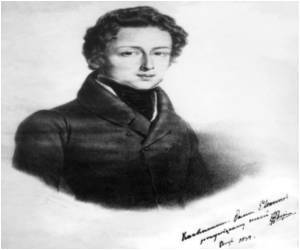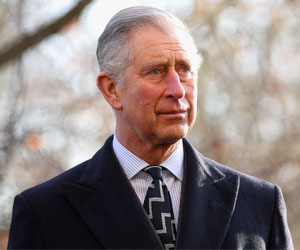
"The phantoms called him, clasped him, and instead of seeing his father and his friend smile at him in the ray of faith, he repelled their fleshless faces from his own and struggled under the grasp of their icy hands," wrote Sand.
But a study by a pair of Spanish neurologists tarnishes this compelling gothic tableau.
Chopin's alienation and hallucinations probably had more to do with a medical condition than the burden of the Romantic artist, it suggests.
Manuel Vazquez Caruncho and Francisco Branas Fernandez of the Xeral-Calde Hospital Complex in Lugo draw this conclusion after sifting through contemporary accounts and Chopin's letters.
In 1848, at a concert at a private house in Manchester, northern England, Chopin was playing his Sonata in B flat minor when he abruptly left the room but returned a short while later to finish the piece.
Advertisement
In other accounts by Sand and one of his pupils, Madame Streicher, Chopin was sometimes seized by a mental state that would leave him wild-eyed and his hair literally standing on end.
Advertisement
The researchers look through the psychiatric states that could possibly explain the great composer's problems.
They rule out schizophrenia out because it usually takes the form of voices.
Migraines can induce hallucinations, but these can last up to half an hour, whereas Chopin's episodes were brief, and lasted only a few minutes or even seconds.
In addition, migraine auras without headache typically occur among patients over the age of 50. Chopin was only 39 when he died, of a respiratory illness.
Another psychiatric disease called Charles Bonnet syndrome is excluded, because it is linked to eye disorders, and there is no evidence that Chopin suffered from these.
Chopin did take opium, in the form of a tincture called laudanum, to ease his many physical problems. But the type of hallucinations he had do not correspond to opium-related visions -- and he experienced them years before taking the opium.
This leaves one big suspect: epilepsy of the temporal lobes, whose seizures can unleash brief, stereotyped visions of the kind experienced by Chopin and a condition called "jamais vu," or a dream-like disconnection from one's surroundings.
But the patient is not drowsy, nor does he lose a state of consciousness.
The authors point out that epilepsy was poorly understood in Chopin's day and could easily have been overlooked by his doctors, although they freely admit that this is only a "diagnostic guess."
Even so, it "could help to separate romanticised legend from reality and shed new light in order to better understand the man and his life," they say.
The study is published on Monday in Medical Humanities, a journal of the British Medical Association (BMA).
Source-AFP












